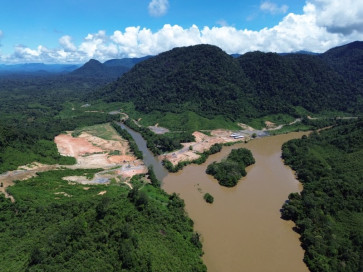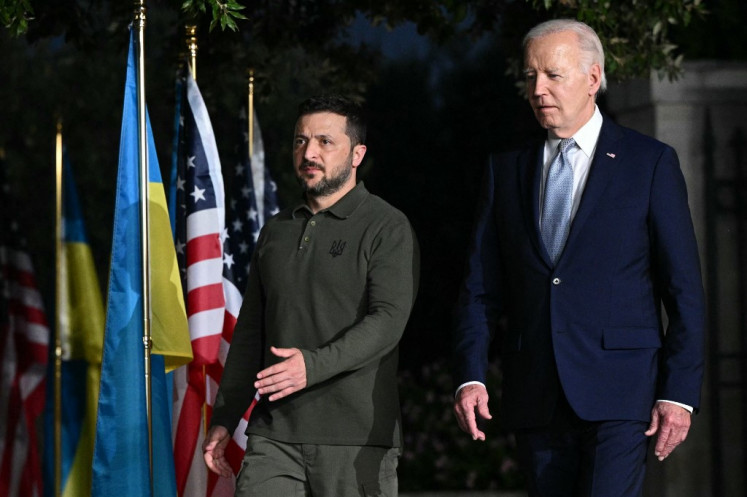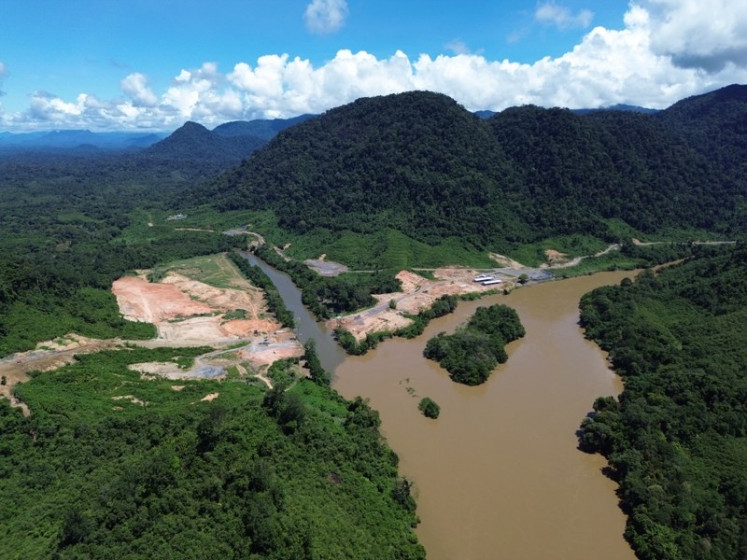Opinion: Lessons we can learn from super-polite Japan
Thank you for opening this newspaper or reading it over someone’s shoulder
Change Size

T
hank you for opening this newspaper or reading it over someone’s shoulder. Thank you for reading the previous sentence and now this sentence. Thank you for not yet lining a birdcage with this newspaper. Today, this columnist has decided to adopt Japanese standards of politeness.
A Canadian was once crossing the border into the United States when a border guard told him to turn his car off. Desiderio Fortunato asked the officer to “say please”. The guard repeated his order, without saying please. The motorist repeated his request.
The officer blinded the motorist with pepper spray, dragged him out of his car, handcuffed him and detained him for three hours. This is how American border guards say, “Welcome to our country, honored guest.”
Compare Japan. In that country, everyone spends so much time saying “please” and “thank you” that it takes several hours to exchange even the tiniest bit of information, such as, “You are standing on my foot.”
And you don’t just use words. You bow. The more polite you are, the lower you bow. Losing your balance and collapsing onto your boss’s wife’s knees is quite common and is considered an extremely polite thing to do. Sometimes I just save time and dive for her ankles as soon as I enter the room.
Take a ride on the Gomen Nahari Line, a railway in Kochi Prefecture and you’ll find one station is called Arigato, which means “thank you”, and another is Gomen, which means “sorry”. Turning the pair into “Thank You Station” and “Sorry Station” was the idea of Takashi Yanase, 85. Mr. Takashi is famed for his original thinking, being the creator of the cartoon superhero Anpanman, a bread roll which fights crime with superhuman (super-bakery-item?) powers.
The obvious question, at least to anyone non-Japanese, is: What is “Thank You Station” thankful for, and what is “Sorry Station” apologizing for?
Nothing. “Just saying ‘sorry’ and ‘thank you’ together makes you feel good,” Yanase told the media.
You see, the Japanese, like the British, scatter polite terms around like confetti to create a general feeling of positivity. Summit meetings between Japanese and British delegations often run out of time before the first item on the agenda, because of the sheer scale of pleasantries involved.
I remember a time not long ago when a US sports reporter attended a Tokyo baseball match. “At the end of games, the players bow toward the field, and even the losing team,” wrote an amazed Bob Sherwin of the Seattle Sports Examiner.
“That’s such a wonderful tradition and I believe you will find it only in Asia.”
But you can take the whole politeness thing too far. In Japan, people have bowed on railway platforms and had their heads hit by trains. There have been many cases where two individuals have met and bowed simultaneously, knocking each other out.
Escalators in Japan are really dangerous places. People going down recognize someone going up, and they bow, losing their balance and causing fatal accidents. But no one complains about it. That would not be polite.
I see I have now filled the allotted space. Thank you for reading this column. You may now approach the birdcage.
The writer is a columnist and journalist.









